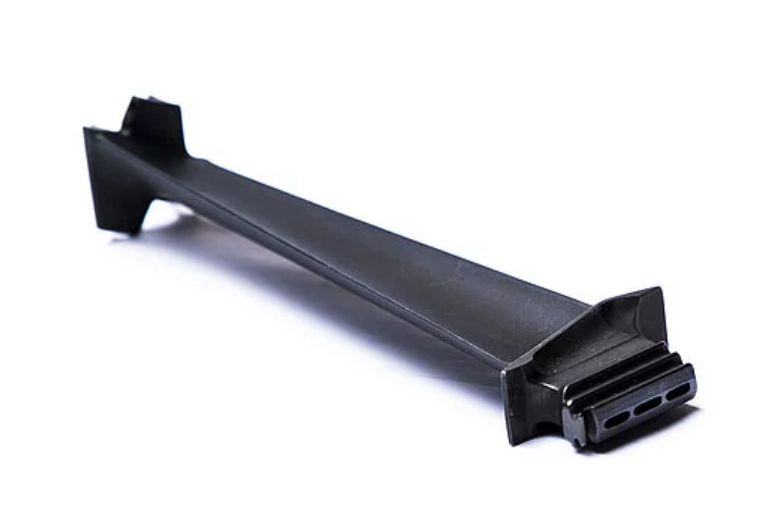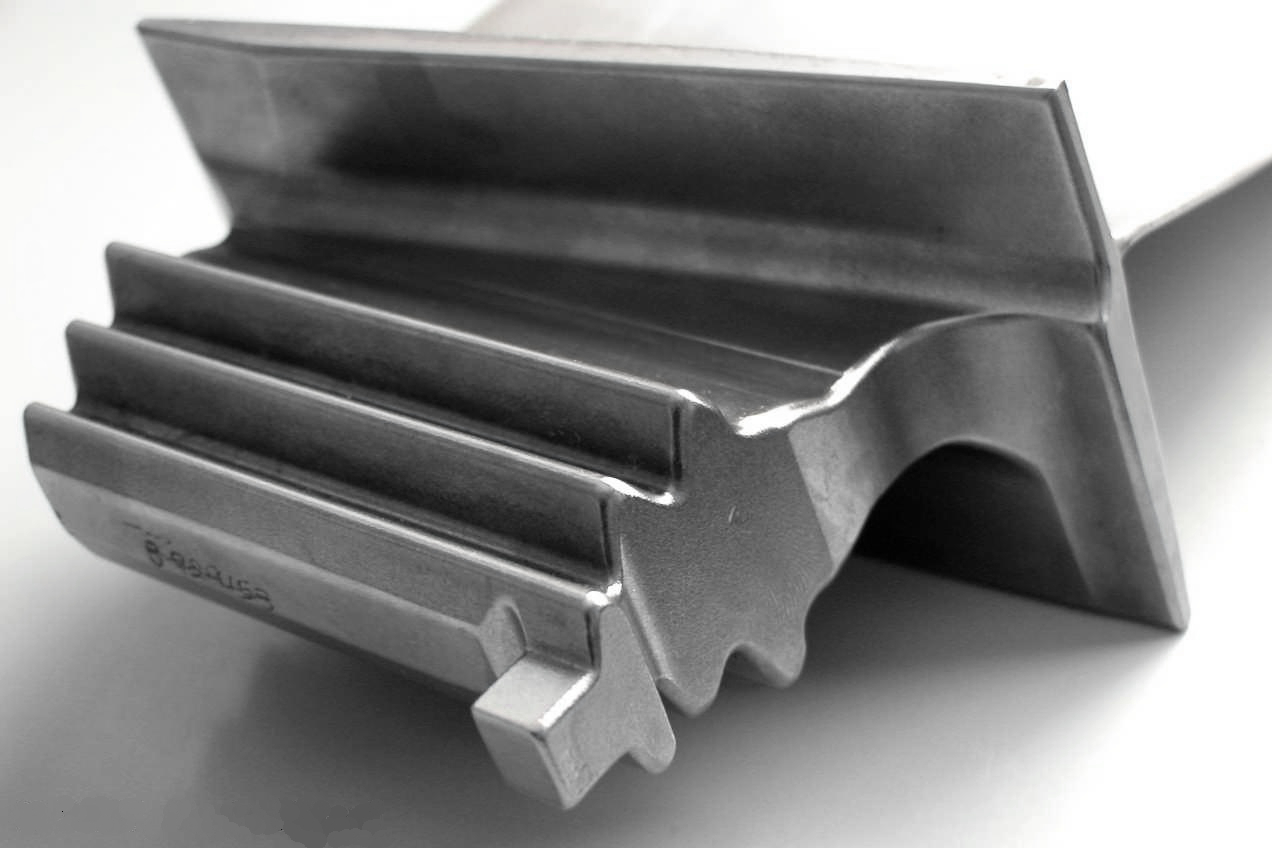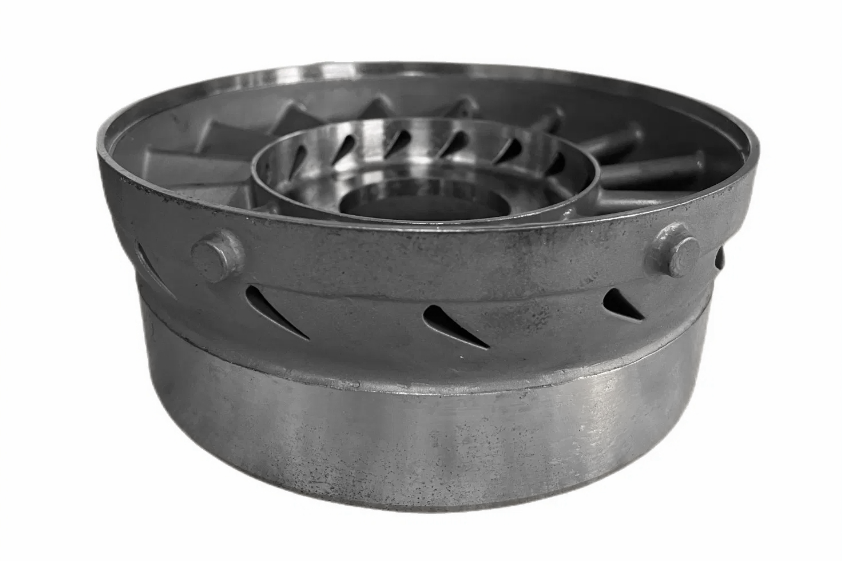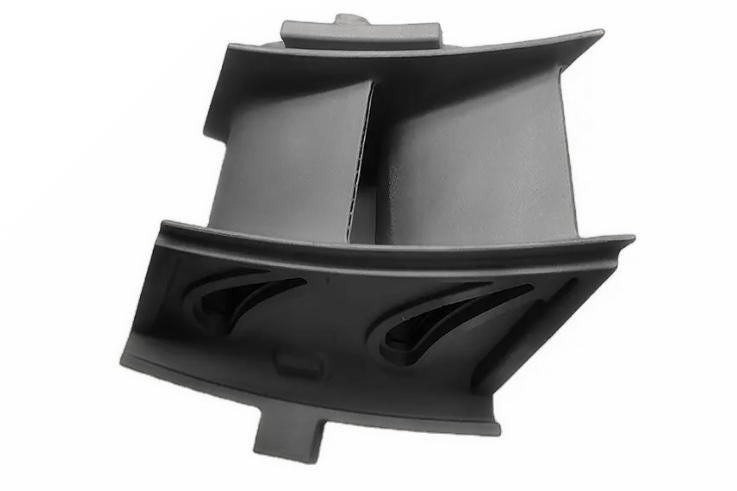PWA 1484
About PWA 1484 Superalloy
Name and Equivalent Name
PWA 1484 is a second-generation nickel-based single-crystal superalloy developed for high-temperature turbine applications. While it has no direct equivalent, it shares characteristics with CMSX-4 and René N5, providing enhanced creep resistance and thermal stability.
PWA 1484 Basic Introduction
PWA 1484 is designed for applications that require exceptional mechanical properties at elevated temperatures, such as jet engine turbine blades. This alloy minimizes grain boundary-related failures by utilizing a single-crystal structure, enhancing its fatigue life and creep performance.
Its balanced chemical composition, including elements like tungsten, tantalum, and rhenium, ensures superior oxidation resistance and high-temperature strength. PWA 1484 is widely used in aerospace engines and power turbines, operating reliably at temperatures exceeding 1100°C with minimal degradation.

Alternative Superalloys of PWA 1484
Alternatives to PWA 1484 include CMSX-4 and René N5, which also belong to the second generation of single-crystal superalloys. These alloys offer similar creep resistance and high-temperature performance. First-generation alloys, such as PWA 1480 and CMSX-2, are alternatives but may exhibit lower creep strength. PWA 1484 remains the preferred choice for applications where extended service life at extremely high temperatures is crucial.
PWA 1484 Design Intention
PWA 1484 was developed to meet the increasing demands of next-generation turbine engines. The design focuses on providing high creep strength, thermal fatigue resistance, and oxidation resistance at temperatures exceeding 1100°C. The alloy’s single-crystal structure ensures minimal creep deformation under stress, while rhenium and tantalum enhance its high-temperature stability. This design allows PWA 1484 to perform reliably for more than 20,000 hours in demanding conditions.
PWA 1484 Chemical Composition
Each element in PWA 1484 contributes to its superior performance. Chromium provides oxidation resistance, cobalt enhances high-temperature stability, and rhenium improves creep resistance.
Element | Weight % |
|---|---|
Nickel (Ni) | Balance |
Chromium (Cr) | 5% |
Cobalt (Co) | 10% |
Molybdenum (Mo) | 2% |
Tungsten (W) | 6% |
Aluminum (Al) | 5.6% |
Tantalum (Ta) | 6% |
Rhenium (Re) | 3% |
Hafnium (Hf) | 0.1% |
PWA 1484 Physical Properties
PWA 1484 offers outstanding mechanical and thermal properties, making it ideal for high-temperature aerospace and power applications.
Property | Value |
|---|---|
Density | 8.74 g/cm³ |
Melting Point | 1355°C |
Thermal Conductivity | 11.4 W/(m·K) |
Modulus of Elasticity | 219 GPa |
Tensile Strength | 1130 MPa |
Metallographic Structure of PWA 1484 Superalloy
PWA 1484 has a single-crystal microstructure with no grain boundaries, which minimizes creep deformation and enhances fatigue resistance under high stress. The matrix comprises a gamma (γ) phase, which ensures structural stability and gamma-prime (γ') precipitates that provide strength by resisting plastic deformation.
The uniform distribution of γ' precipitates, consisting of nickel, aluminum, and tantalum, ensures mechanical stability and high-temperature performance. This microstructure makes PWA 1484 highly resistant to thermal fatigue, enabling reliable operation in jet engines and turbines for extended periods.
PWA 1484 Mechanical Properties
PWA 1484 offers excellent tensile strength, creep resistance, and long service life at high temperatures, making it suitable for demanding aerospace applications.
Property | Value |
|---|---|
Tensile Strength | 1200-1250 MPa |
Yield Strength | ~1000 MPa |
Creep Strength | Excellent at 1150°C |
Fatigue Strength | 600-700 MPa |
Creep Rupture Life | >20,000 hours at 1050°C |
Hardness (HRC) | 40-45 |
Elongation | ~12% |
Modulus of Elasticity | ~225 GPa |
Key Features of PWA 1484 Superalloy
High-Temperature Strength PWA 1484 delivers excellent mechanical performance at temperatures above 1100°C, ensuring reliability in turbine blades and other aerospace components.
Exceptional Creep Resistance Designed for extended operation, PWA 1484 provides superior creep resistance, maintaining structural integrity for over 20,000 hours at 1050°C.
Thermal Fatigue Resistance The alloy excels in resisting thermal fatigue, making it ideal for jet engines and turbines subjected to rapid temperature fluctuations.
Oxidation Resistance With 5% chromium, PWA 1484 offers robust oxidation resistance, preventing surface degradation under high-temperature conditions.
Single-Crystal Structure: The absence of grain boundaries improves fatigue resistance and prevents creep, ensuring PWA 1484’s durability in extreme aerospace environments.
PWA 1484 Superalloy’s Machinability
PWA 1484 is well-suited for Vacuum Investment Casting, offering high precision and minimal porosity, making it ideal for complex turbine components.
It is highly effective in Single Crystal Casting due to its optimized microstructure, which eliminates grain boundaries, enhancing fatigue resistance and high-temperature performance.
PWA 1484 is incompatible with Equiaxed Crystal Casting because it requires a single-crystal structure for superior creep resistance and thermal fatigue performance.
Although possible, Superalloy Directional Casting is not preferred for PWA 1484 since single-crystal casting yields superior results in demanding aerospace applications.
The alloy is unsuitable for Powder Metallurgy Turbine Disc manufacturing because powder metallurgy cannot achieve the single-crystal microstructure required for optimal performance.
Due to its brittle nature at room temperature, PWA 1484 is not ideal for Superalloy Precision Forging, which requires significant deformation.
Superalloy 3D Printing is not feasible for PWA 1484 since current additive manufacturing methods cannot replicate single-crystal structures.
PWA 1484 can undergo CNC Machining with specialized tooling, achieving high-precision cuts required for aerospace components.
Superalloy Welding of PWA 1484 is challenging due to the potential introduction of microcracks, compromising the integrity of the single-crystal structure.
Hot Isostatic Pressing (HIP) benefits PWA 1484, eliminating internal porosity and enhancing the mechanical properties of cast components.
PWA 1484 Superalloy Applications
In Aerospace and Aviation, PWA 1484 is used in turbine blades and vanes, offering excellent fatigue resistance and thermal stability at high altitudes.
In Power Generation, the alloy ensures long service life in gas turbines, where extreme temperatures demand materials with high creep resistance.
For oil and gas operations, PWA 1484 is applied to high-temperature turbines and valves, providing reliable performance under harsh conditions.
The Energy sector utilizes PWA 1484 in power turbines, mainly where renewable and conventional systems operate at elevated temperatures.
In the Marine industry, the alloy supports turbine and propulsion systems that encounter high-stress and corrosive environments.
In mining, PWA 1484 is applied to high-performance equipment, including wear-resistant pumps and tools operating under extreme conditions.
The Automotive industry uses PWA 1484 in motorsport engines and high-performance systems where thermal fatigue resistance is essential.
Chemical Processing facilities benefit from PWA 1484’s oxidation resistance and thermal stability, ensuring reliable operation in reactors.
In the pharmaceutical and food sectors, the alloy is used for high-temperature sterilization equipment that requires durability and corrosion resistance.
Military and Defense applications include advanced jet engine components and propulsion systems, leveraging PWA 1484’s fatigue resistance and strength.
In Nuclear applications, PWA 1484 supports turbine components and reactor parts that require long-term stability under high radiation and thermal exposure.
When to Choose PWA 1484 Superalloy
Choose PWA 1484 when your application demands superior creep resistance, thermal fatigue performance, and long service life at extreme temperatures. It is the ideal choice for custom superalloy parts, particularly in jet engines and power turbines that require stability at temperatures exceeding 1100°C. PWA 1484 is best suited for aerospace and power generation industries where high mechanical strength and oxidation resistance are critical. If your components must withstand rapid temperature fluctuations and extended operational hours, PWA 1484 provides reliable performance with minimal degradation over time.



